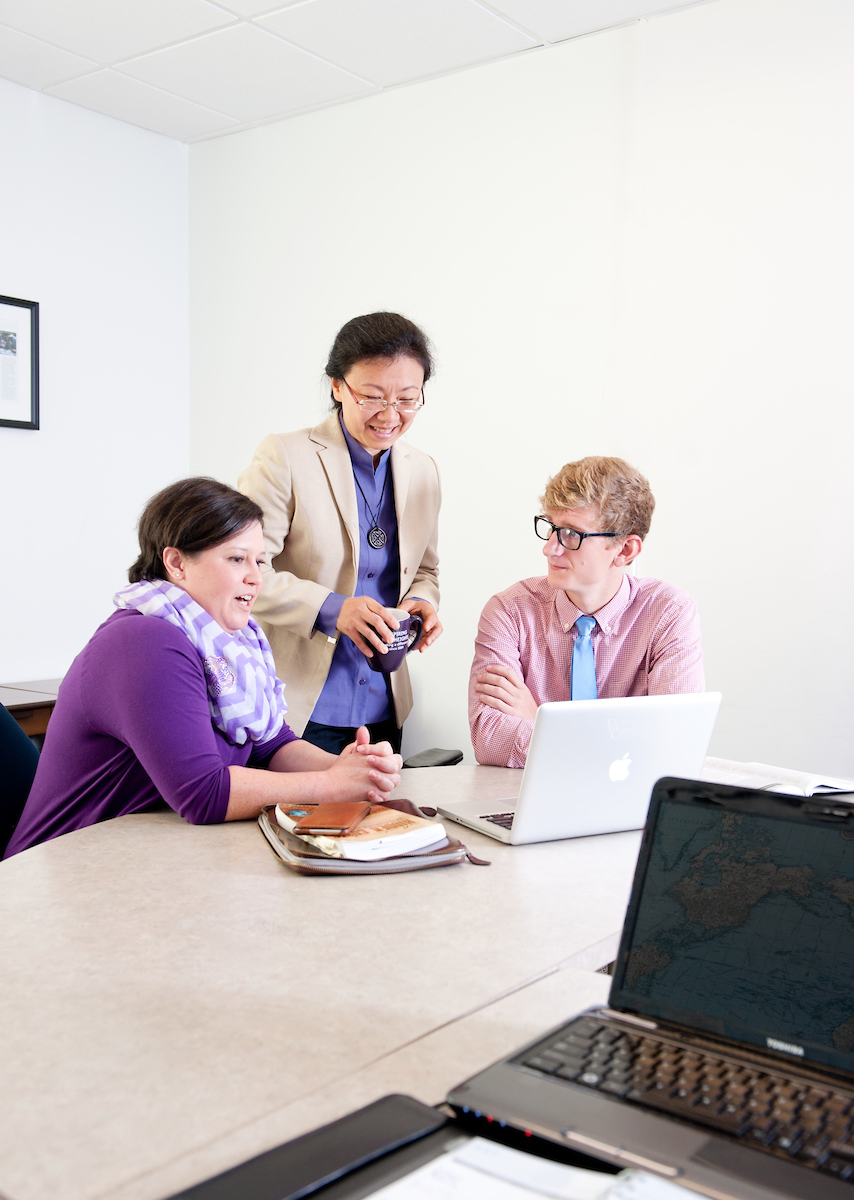Remote Service-Learning
The Center for Community Engagement and Service Learning (CCESL) believes that if well developed, thoughtfully planned, and intentionally designed, e-service-learning can be a valuable experience for all involved. The key words here are intentional design, both in context of the community partnership(s) and the course structure (e.g., outcomes, assignments, communications, and reflection).
The most pertinent advice for determining how best to pivot, curricularly, is to include potential community partners from the outset of course design or re-design. The magic of service-learning has always been in the mutually beneficial process of reciprocal goal development between partners and instructors, and that is truer now than ever before.
To access additional resources for designing or redesigning courses, log into Canvas and under the space that states: “Courses where you are: Student” you will see a course entitled, “FACULTY RESOURCE HUB,” and in that course you will see a section entitled, “Remote Experiential and Active Learning.” In this section you will find resources for Remote Service Learning, Internships, Remote Common Intellectual Experiences, etc.
- Do the nature and context of my higher-order learning outcomes require a service-learning
project?
-
If so, we can find a way to operationalize them in practice and in partnership; therefore, let the journey begin.
-
If not, then consider alternative methods (e.g., case studies, simulations, role plays, etc.) that might help you achieve your higher-order learning outcomes.
-
- What are the higher-order learning outcomes that will be brought to life by engaging
your students with real-world projects and partners?
- List 1-3 outcomes.
Example syllabi and outcomes
- List 1-3 outcomes.
- What is/are the primary issue(s) that your course content and outcomes align with?
- List those issues and potential organizations you are familiar with.
Identify partners and issues
- List those issues and potential organizations you are familiar with.
- What assignments exist or could exist that would push students to achieve and exemplify
the higher-order learning outcomes and at the same time meet a need, challenge, or
opportunity of your course's partner(s)?
- Think about what your students can do, create, or implement.
Examples
- Think about what your students can do, create, or implement.
- How do you know that your learners are getting it-- learning? In what ways will you
evaluate, assess, or determine their learning?
- Capitalize on course assignments and higher-order learning outcomes that build upon
each other to formulate a continuity of learning and that can be documented in both
formative and summative ways.
More information
- Capitalize on course assignments and higher-order learning outcomes that build upon
each other to formulate a continuity of learning and that can be documented in both
formative and summative ways.
- Indiana Campus Compact – Covid-19 and the Engaged Campus
- AAC&U Values Rubric – Civic Engagement
- Center for Community Engagement and Service Learning – Deal Reflection Model: Low and High Intensity Options
- Dr. Lane Perry – Digital Media as a Reflective Tool: Creating Appropriate Spaces for Students to Become Introspective
- Dr. Marie-Line Germain – Integrating Service-Learning and Consulting in Distance Education
- Dr. Jennifer Purcell – Community-Engaged Pedagogy in the Virtual Classroom: Integrating EService-Learning into Online Leadership Education
